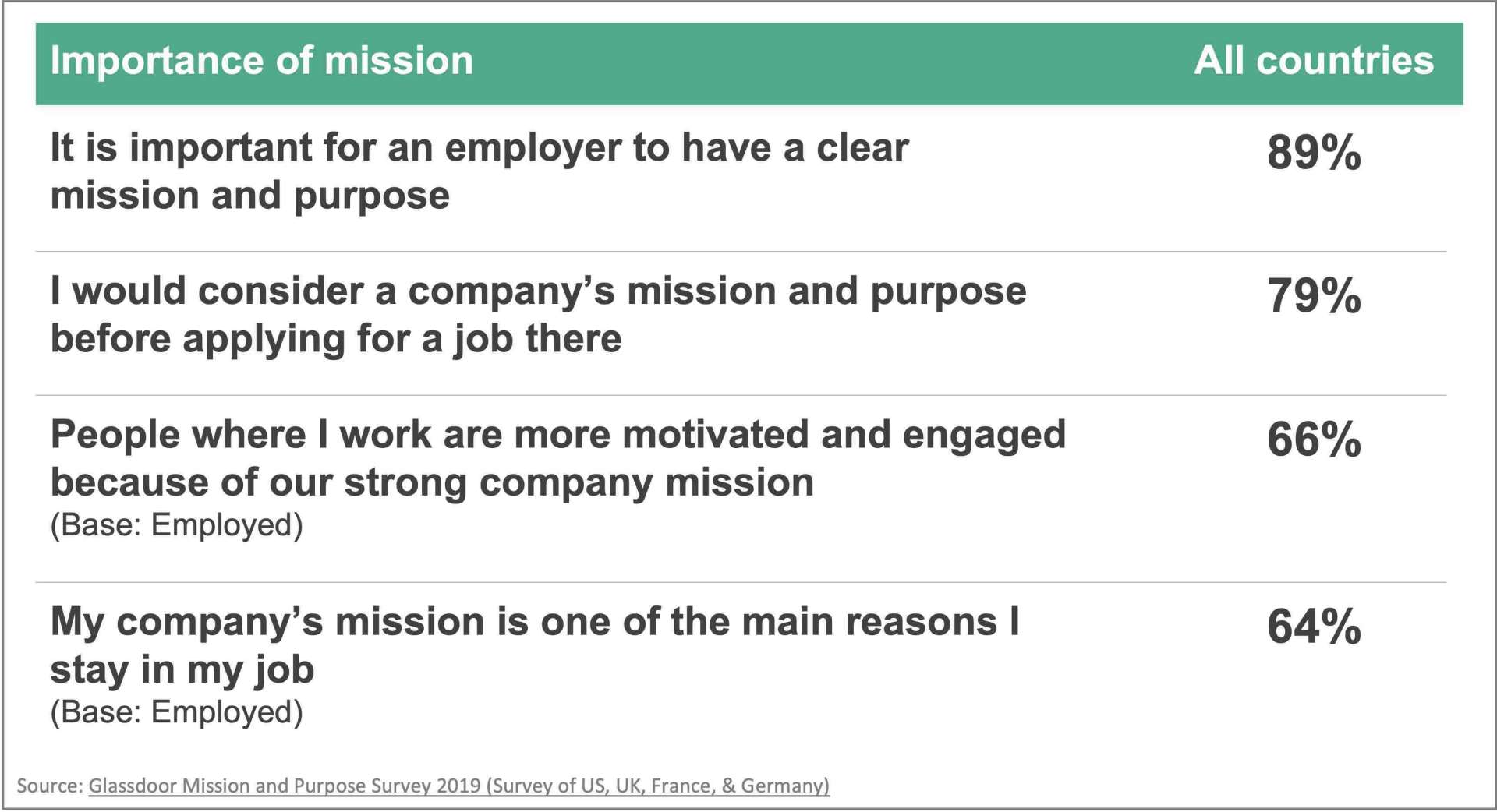Purpose helps attract talent…
The past decade or more has been an employee’s market. With low unemployment, talented and productive individuals have more options and can be more selective in choosing where they want to work. One response from business has been steadily increasing compensation packages and the addition of non-compensation related benefits. At a certain point, there is a convergence, and it becomes more difficult for companies to differentiate themselves in this way.
Another development is that the workforce is increasingly more attracted to working for businesses that are purpose-driven (as noted in prior sections). A 2016 study by Cone Communications indicates 64 percent of millennials will not work for a company that doesn’t have strong commitments to community and environment. This trend is also true for other generations, though it is higher among millennials.
In a prior section, we noted evidence that business school graduates are willing to take a lower salary to work for a company with a demonstrated commitment to sustainability. Purpose-driven employees are also 30 percent more likely to be high-performers. Increases in productivity and reductions in compensation have positive bottom-line impacts.
Becoming a Certified B Corporation is an easy way for a company to signal their values and commitments and attract purpose-driven employees.

…and keep that talent at your company
Employee retention has a direct impact on company success. Departing employees take with them knowledge of intellectual property. New employees require time to train, to become productive, and to integrate into the company culture. All of this can be a distraction.
A 2019 survey by Glassdoor illustrates how company mission (and focus on sustainability) impacts a company’s ability to attract and retain employees. The survey included respondents from the US, UK, France, and Germany. A strong mission impacts job selection, employee engagement, and retention.
As noted previously, the Cone Communications survey indicates that 88 percent of millennials find their jobs more satisfying when they they have opportunities to positively impact social and environmental issues. Higher satisfaction equates to higher employee engagement. The higher engagement leads to increased productivity – the 2018 Gallup poll indicates that engaged employees are 17 percent more productive. And as noted earlier, disengaged employees are a financial drain and highly engaged employees have higher productivity and contribute more to top- and bottom-line growth.
This all translates into a material impact on employee retention. Purpose-driven employees are 80 percent more likely to be promoters on the eNPS scale. And they are 54 percent more likely to stay with a company for 5 or more years. A satisfied and stable workforce reduces the churn associated with turnover and contributes to steadier and more reliable output.



